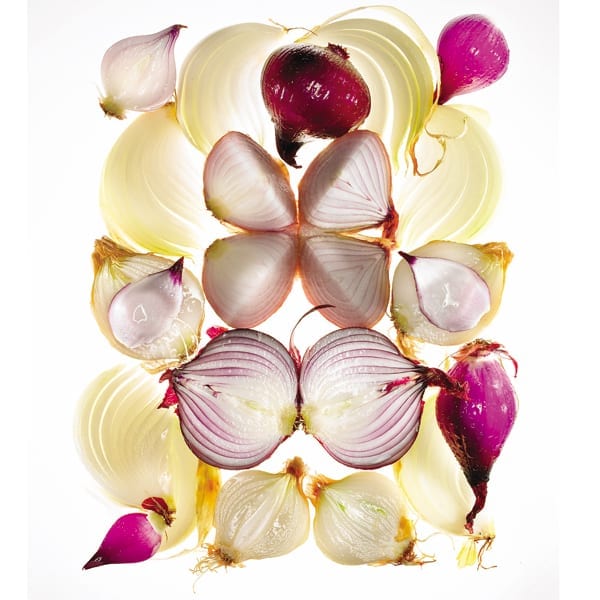The health benefits of onions
Juliette Kellow reveals how onions can help keep the heart healthy and ease the pain linked with inflammatory conditions, such as arthritis.

It’s not just flavour that onions add to a meal – they’re also packed with nutrients that have many health-promoting benefits. In particular, they’re bursting with phytonutrients – naturally-occurring plant chemicals – that appear to do everything from helping to keep our hearts healthy and lowering the risk of cancer to helping ease the pain associated with arthritis.
Onions are also crammed with other beneficial plant chemicals called flavonoids, most notably quercetin. An analysis of seven studies, involving more than 10,000 participants, found that those people whose diets contained more onions, tea, apples and broccoli – the richest sources of flavonoids – reduced their risk of heart disease by 20%.
Onions also contain several anti-inflammatory agents that appear to help reduce the pain associated with inflammatory conditions such as osteo- and rheumatoid arthritis. In particular, quercetin is thought to inhibit the enzymes that generate substances such as prostaglandins, which cause inflammation and the resulting pain. Quercetin may also block the release of histamine, helping to ease the symptoms of allergies such as hay fever.
Like garlic and leeks, onions are members of the allium family, and are rich in a powerful sulphur-containing compound called allyl disulphide that gives them their pungent odour and contributes to their superfood status. According to the US National Cancer Institute, many observational studies have provided good evidence that the sulphur compounds in onions and garlic may help reduce the risk of cancer. Of 37 studies on humans, 28 showed some cancer-preventive effect. However, most experts agree more research needs to be done.
Research has also shown that eating more onions may help to lower blood sugar levels. And experiments suggest it’s the sulphur compounds that are responsible for this effect. They appear to boost levels of insulin, a hormone that helps to mop up sugar in the blood and take it to the cells, where it’s needed to provide energy. This, in turn, helps to lower blood sugar.
Finally, research published in the Journal Of Agricultural And Food Chemistry suggests you might want to choose onions carefully, as different varieties contain different amounts of beneficial compounds.
In general, red onions contain more quercetin than white-skinned or spring onions, while the most pungent onions deliver more benefits than milder ones. In other words, the more it makes your eyes water, the more likely your onion is to be loaded with health-promoting nutrients.
How to eat more onions
- Make a dip from chopped onion, tomatoes, avocado, garlic, a little fresh chilli and lemon juice.
- Top salads with sliced red onion or spring onions. Or make a red onion, tomato and coriander salad to serve with a curry.
- Add sliced spring onions to stir-fries or mix with tuna, egg or grated cheese for tasty potato toppings or sandwich fillings.
- Serve trimmed spring onions with a low-fat dip for a tasty snack.
How much should I eat?
One medium onion or eight spring onions count as one of the recommended five daily servings of fruit and vegetables. Top tip: chilling onions slows down the activity of the enzyme that produces the sulphur compound which makes us cry.
Buying guide
Look for onions that feel dry and solid all over. The outer skin should have a crackly, shiny feel. Keep whole onions in a cool, dry place and away from bright light. Onions absorb moisture, so don’t keep them under the sink or near potatoes, which give off moisture and produce a gas that causes them to spoil faster.
Subscribe to our magazine
Food stories, skills and tested recipes, straight to your door... Enjoy 5 issues for just £5 with our special introductory offer.
Subscribe
Unleash your inner chef
Looking for inspiration? Receive the latest recipes with our newsletter